It’s Hard Enough Out Here For Women: Lily Allen and the Misuse of Satire
News of Lily Allen’s return to music with the release of her new single has spread like wildfire. The title song of her new CD is called “Hard Out Here” and one look at the lyrics shows that it had the potential to be an amazing pop feminist anthem. One stanza reads:
“You’re not a size six, and you’re not good looking
Well, you better be rich, or be real good at cooking
You should probably lose some weight
‘Cause we can’t see your bones
You should probably fix your face or you’ll end up on your own”
Unfortunately, this is the best stanza in the entire song. The rest has so much subtle racism in it that it becomes hard to listen to. Allen opens up the song talking about how she won’t be “stuck in the kitchen” because she’s recording her music and that she won’t be “bragging ‘bout [her] cars or talking ‘bout [her] chains/ don’t need to shake [her] ass for you cause [she’s] got a brain”. This is where the song starts to become less about equality and more about white feminism.
Both of Lily Allen’s lines appear to critique rap music, but the way she words her song, accidentally or not, makes fun of identifiers of wealth, like gold chains and cars with accessories, that are predominantly seen in rap music to show power and money. This extends her critique from one of a materialistic culture to one of “black culture,” as she problematically conflates the two.
The problem with white feminism is the erasure of women of color, both as people and their history. Assuming that all women lead similar lives has pushed women of color away from mainstream feminism and to seek out terms or movements that more effectively embody their personal experiences. Acknowledging the need to recognize the multiplicity of female experiences, Alice Walker, and later Irene Monroe, embrace the concept of “womanism”. Monroe quotes Walker when she explains, “A womanist can be a lesbian, a heterosexual, a bisexual, or a transgender woman. She celebrates and affirms African-American women’s culture and physical beauty. A womanist ‘loves herself. Regardless.’”
American history shows how much the agency and wealth of people of color, particularly African Americans, have been treated as threats to society. From oppression through slavery, to the black codes, to Jim Crow, majority races have pushed down minorities to keep their place of power in society. When Allen or any other pop artist, such as Lorde and her song “Royals,” sing about the stereotypes of black wealth in hip-hop, there is an echo of racism.
Rap music is not the only genre of music to sexualize women, but it is the easiest scapegoat for many people. Country songs like Trace Adkins “Honky Tonk Badonkadonk,” which is entirely about a woman with a large rear, or classic rock songs like “Used to Love Her “ by Guns N’ Roses, where the lyrics casually discuss the murder of a woman because she “nags” her boyfriend too much, clearly objectify women. But these artists are rarely critiqued as examples of sexism as the focus continues to be on hip-hop culture.
Both women of color and white women have already come down hard on Miley Cyrus and Iggy Azalea for appropriating black culture and using it as a prop. Unfortunately, Allen’s music video for the song uses women in the same way, but does not even stop there.
There is a habit of Western or white feminism to step on the backs of women of color while trying to promote “equality”.
Allen’s video is populated by black women “twerking” and having drinks spilled on them while she stands around watching, echoing back to the opening lines of her song speaking about how she does not need to talk about cars or chains or shake her ass because she uses her brain.
While Allen is trying to parody Miley Cyrus’s videos, satiric racism is still racism.
There are two dancers that are not black, one is Asian and the other white. But these women have more clothing and are the only dancers with jackets. In the scene where the dancers are against a car, the black women have the close up shots of their rears while Lily Allen stands almost completely covered in clothing in the middle. While Allen may claim she has a brain for not twerking, these women of color are being shown as lacking both a brain and agency throughout the video. It seems that she is blaming black women for many of the stigmas currently surrounding women.
This is not the feminism and empowerment that most feminists subscribe to: it’s about solidarity and understanding, not blame. Sexualization is not the only way to achieve success, and although Allen is trying to show that, she fails miserably. We do not need to pick between sexism and racism; we can battle both at the same time.
The only outstanding part of the music video is Lily Allen’s spot on parody of Robin Thicke’s “Blurred Lines,” complete with silver balloons telling us that she has a “baggy pussy” rather than Thicke’s “big dick.” The use of a white male manager who pressures Lily Allen into surgery is also a very well thought out message to send.
But the positive is completely covered by the overwhelming negative in the video. Subscribing to color-blindness when it comes to race, does not excuse Allen for her actions. Any type of media that degrades black women and their bodies to empower and elevate another woman’s status in society, especially a white woman’s, is not feminist. Lily Allen does not get to decide what is racist or not.

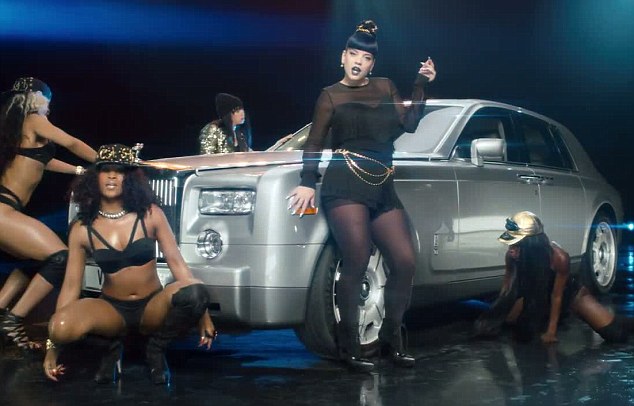
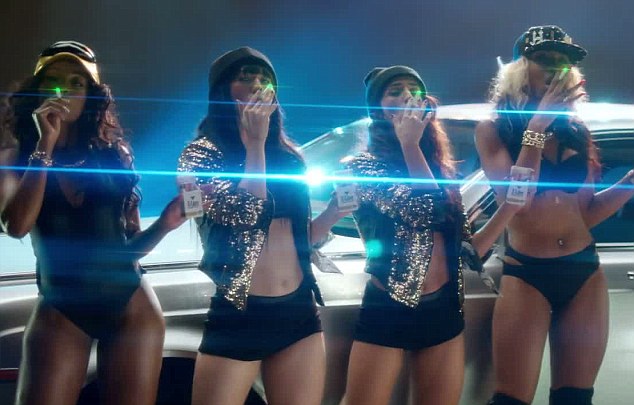
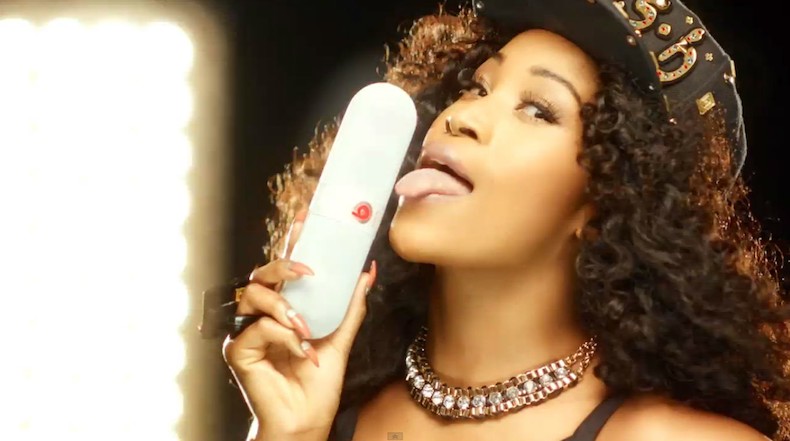
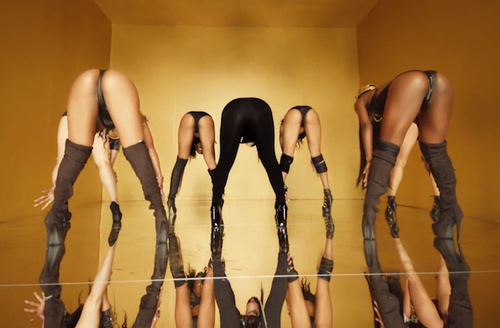
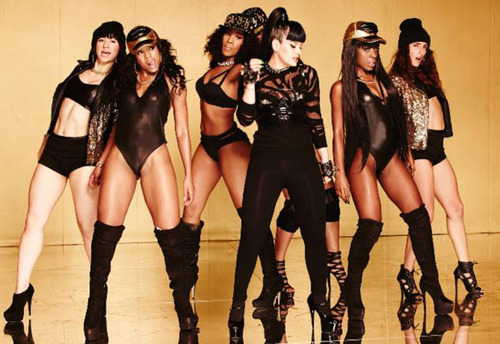
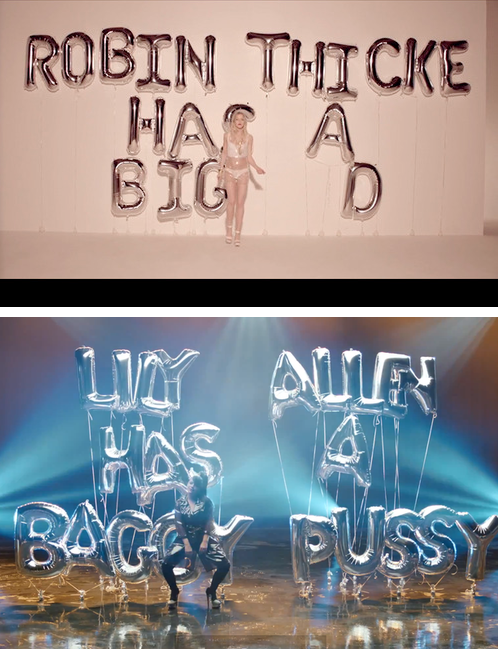
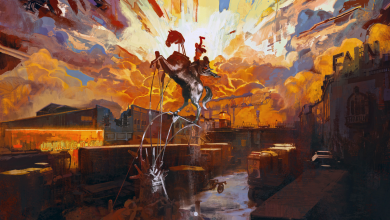



Interesting article. I assume you are proud of it, if you are posting it so publicly to Facebook, yet it seems you are incapable of taking any constructive criticism or acknowledging the logical fallacies inherent in your claims.
It would appear that you don’t understand what racism is. Any person of any color or creed can be racist. It does not, as you assert, “come from power and privilege”, it comes from the concept of “other” with regard to color. It comes from stereotyping; believing one knows something bad about an unknown person simply because of the color of his or her skin. The fact that you dismiss the definitions of racism which have been provided to you as written by white men, when they don’t serve your purposes is perhaps the most damning trait you’ve exhibited so far. This is the ultimate in shabby journalism. An interesting idea is explored, and when it actually inspires discussion, you shut that discussion down, telling people the cogent points they’re making (and the holes in your logic they’re exposing) are invalid.
A wise person once tried to say “it’s about solidarity and understanding, not blame.” Why are you unable to take that advice?
Lily Allen makes use of several races of backup dancers to show the traits female musicians are exhibiting that she chooses not to espouse. She and Lorde make mention of topics and behaviors that are prominent in popular music today, with which they each choose not to associate themselves.
They’re celebrating and even showing pride for their failure to fall into the mainstream and their belief that some of those behaviors denigrate those who luxuriate in them. It’s a valid point, and one enriched with messages of strength and individuality for young women in the audience for this music.
Therefore, I humbly suggest that you take your shaky understanding of the terms upon which you built your opinion, and celebrate the positive intent in the music, instead of looking for racism where racism is literally being called out, satirized, and ridiculed. “It’s about solidarity and understanding, not blame.” These women deserve your solidarity and understanding, not your blame. It’s good advice, take it.
Although I disagree with some of what you call racism, I have to admire your conviction and its follow through – something I’m clearly not reciprocating when admitting such disagreements.
If you watch the video, the man encouraging her plastic surgery is intended to represent the music industry and is seen later in the video showing all of the dancers how to make themselves look sexier. It’s not a swing at women of color at all
I think the most disappointing part of the article comes at the beginning:
“the way she words her song, accidentally or not, makes fun of identifiers of wealth, like gold chains and cars with accessories, that are predominantly seen in rap music to show power and money. This extends her critique from one of a materialistic culture to one of “black culture,” as she problematically conflates the two.”
I think overall, these signifiers of wealth are the biggest problem in modern rap music. It is sad to think that power and money, both awful aspects of capitalism, automatically signals back to black culture, as you subtly associate.